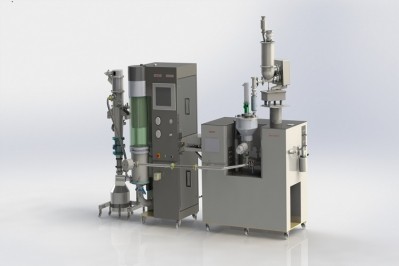INTERPHEX 2018
Continuous manufacturing: Lower API volumes reduce development costs, says exec

As previously reported by in-PharmaTechnologist, benefits of the continuous – as opposed to batch – method can include improved product quality and lower outlays, such as reduced good manufacturing practice (GMP) areas, transport, and storage.
However, at Interphex last month, Trek Therapeutics’ Kevin Bittorf told delegates, “The one thing that continuous manufacturing will definitely save you money on, is development.”
Reducing active pharmaceutical ingredient (API) waste is one such way drugmakers can benefit when switching to a continuous method, he explained.
“If you want to make a 500kg batch, you have to scale up at least once or twice to 500kg, and that material is generally thrown out.
“When you’re doing 20kg an hour [using the continuous method]…you’re using a lot less API in the development stage. And in development, your API is anywhere from $10k [€8.5k] to $110k a kilo,” he added.
Commercial benefit?
Alkermes’ Magali Hickey told delegates that a continuous method also may provide value from a commercial manufacturing standpoint.
“It may look on paper that a batch method is going to be cheaper…but none of that cost will account for batches failing in commercial development, and then not being able to sell that product,” said Hickey.
“The more complex the process it, the more susceptible you are to doing that,” she added.
While some companies may be concerned that switching to a continuous method makes prior investments in batch technologies a “sunk cost,” Hickey told delegates to look at the bigger picture:
“I care about you being able to reproducibly manufacture this drug.”
























